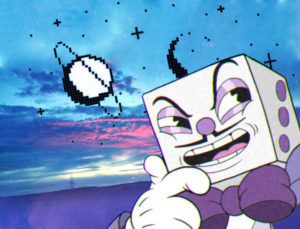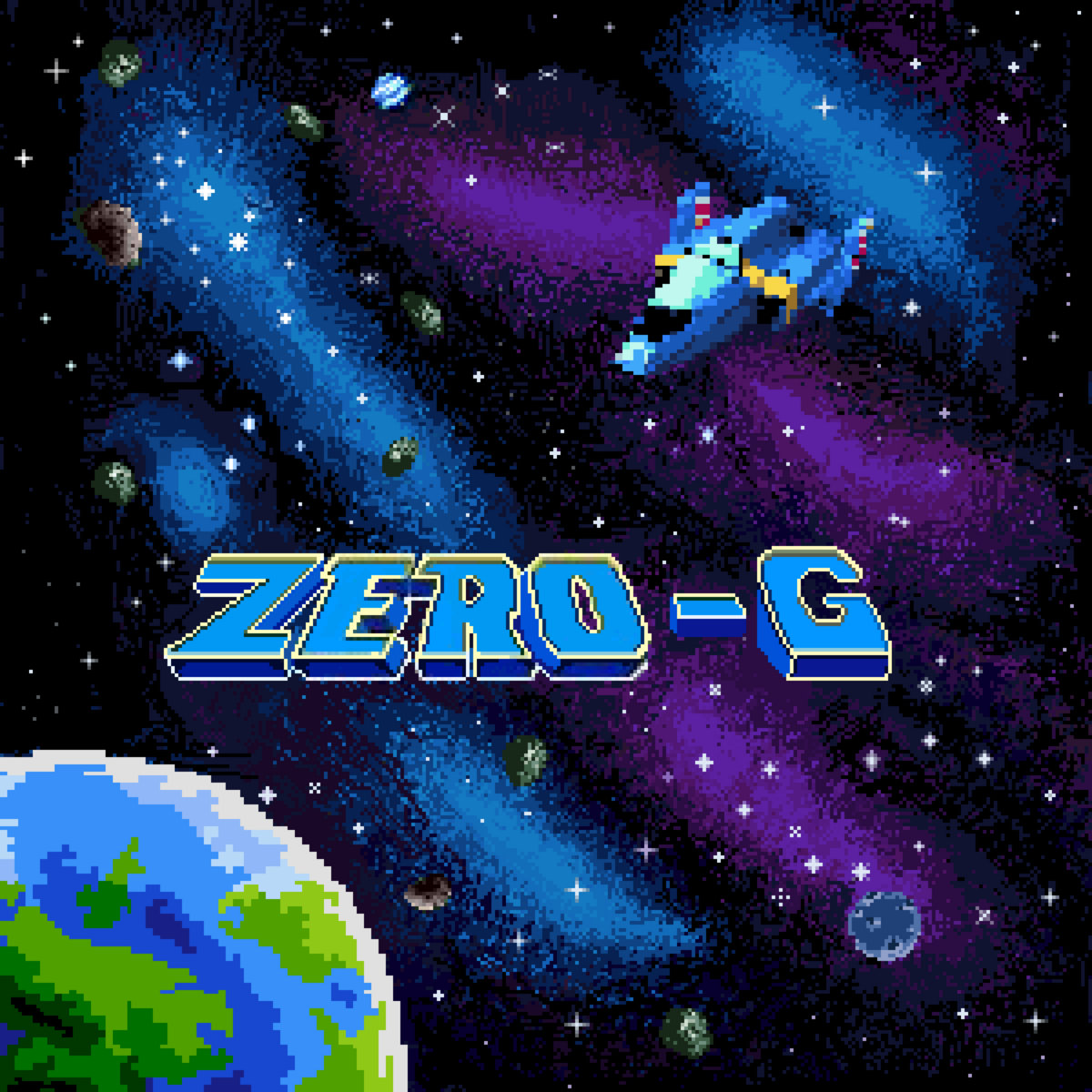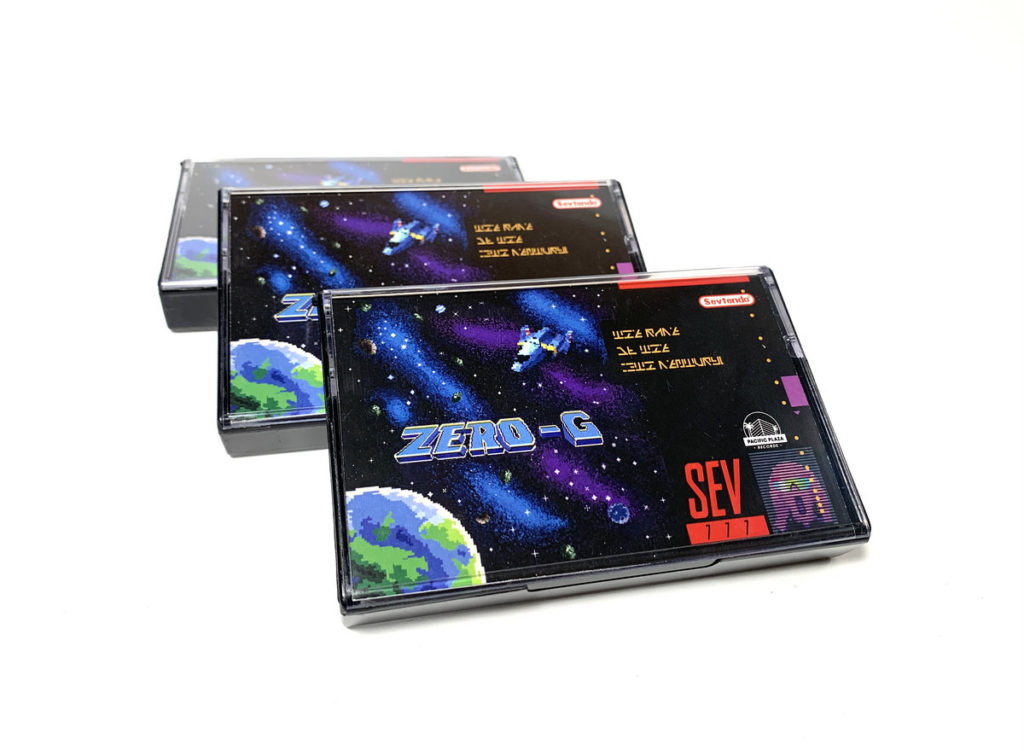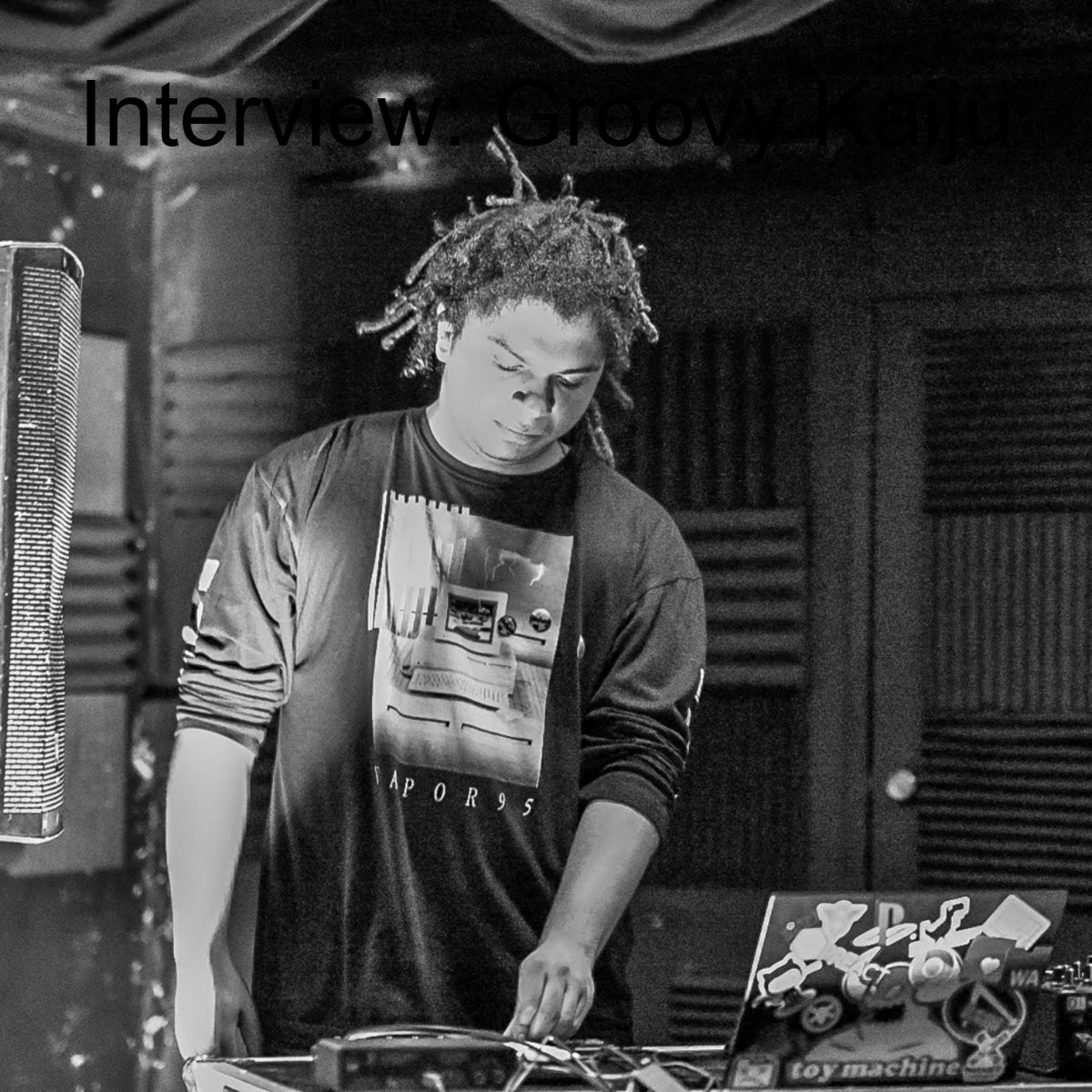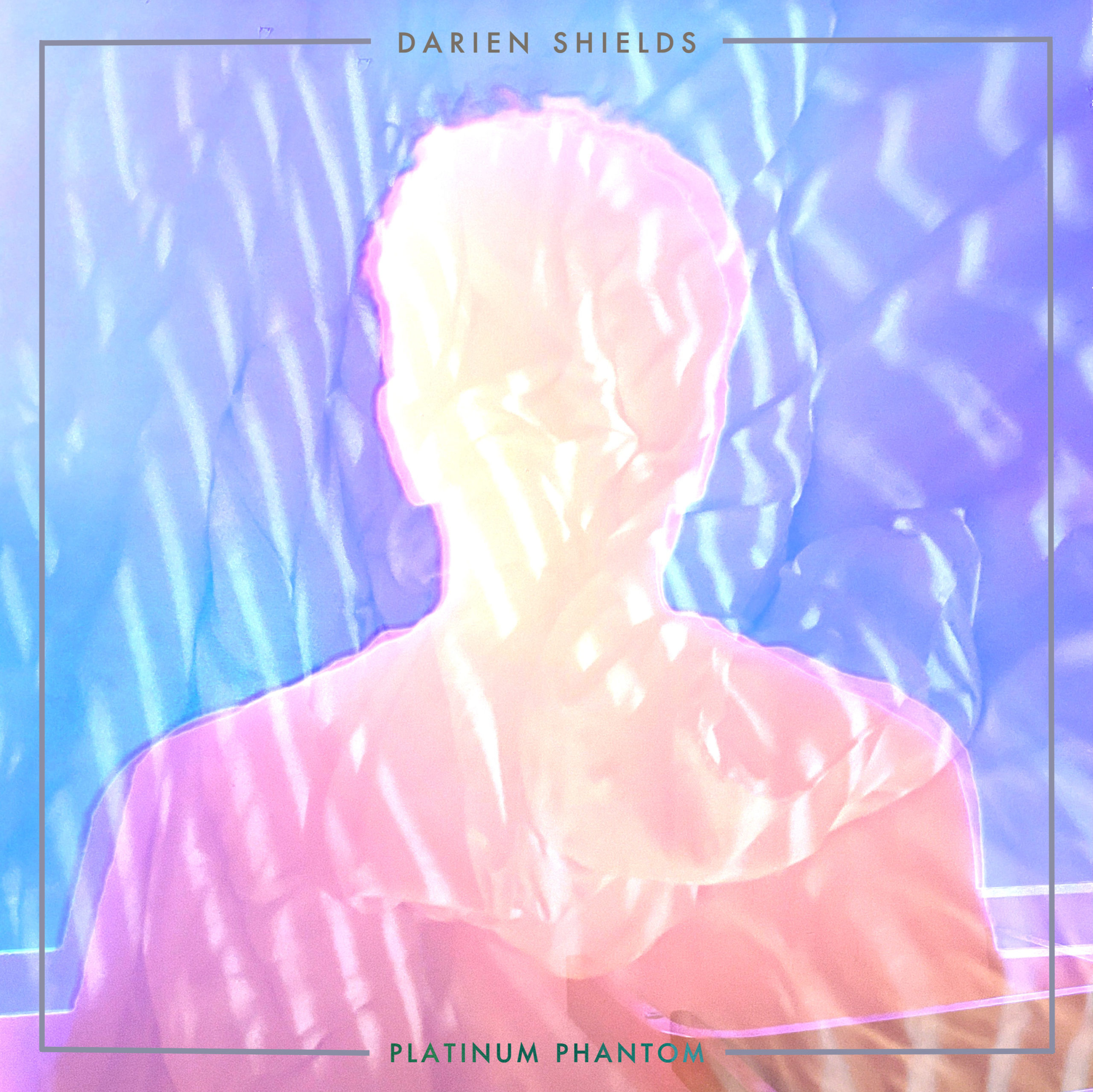
Album Review
Platinum Phantom
by: Darien Shields
Written By: C A S I N O
Published: July 31st, 2022
Album Released June 24, 2022
Ah, 1997. I was at the tender, innocent age of five, discovering the things that would influence me for the rest of my life, such as Power Rangers and mimosas. It was also the final year that the original Sailor Moon anime was aired on American television sets. Back then, I didn’t really care, but it appears that for one vaporwave artist, this was nothing short of a tragedy.
Eric Gordon — aka Darien Shields — has been in the vaporwave game since 2017 and told me that he had a goal in mind when creating this alias: to create a total of seven unique albums, themed according to the years that Sailor Moon (the show he takes his name from) aired on television, so from 1991 to the aforementioned 1997. Platinum Phantom is the last in this series of albums, and as such, every sample from the album is from the far-off year of 1997. Besides the theming, he stated this time that he, in his own words, wanted to lean more into vaporwave cliches.
“This time I focused a lot more on MIDI composing than on any previous albums though. Some songs are wholly original compositions made from the samples I lifted. Some parts are just straight up slow-downs, but I tried to do that as sparingly as possible this time so I could really explore more and invest more of myself into the music.”
I like vaporwave albums with themes as it helps in the artist’s grand quest to make the listener feel something. Walking through a rainy Japanese mega-city or shopping in an eerily empty indoor mall or just making you feel sad as !@#$ are all popular themes in vaporwave. The question is; what is this album trying to make you feel? And the answer is: Well I’m not quite sure. Yes, nearly all of the samples are from 1997, but at no point did the album feel like this is something that was from or paying homage to that year. The album seems to lack a coherent vision or goal, not just overall, but in the individual songs as well.
So let us get right into it with… a slowed-down voice clip from Austin Powers? With that rather curious introduction, “Backstreet” continues. It begins intriguingly enough — Austin Powers sample aside — with an interesting melody, but instead of adding variation to that melody or having the song ramp up, it does the opposite and slams on the brakes. The music stops and what replaces it is some ultra lofi drum work and what sounds like someone banging on a pot with a metal spoon. This goes on for a bit before the melody from earlier fades back in. However, by this time my “groove,” as it were, was broken, leaving me rather unsatisfied. Vaporwave is no stranger to change-ups, however, there is usually an overarching feeling the artist is trying to convey when this is done. With this track, and many others on the album, it almost feels as though it is two different tracks and ideas unharmoniously meshed together.
“Comrade Chad” begins with a few scattered sound effects. Blowing wind, the sound of shoes squeaking on gym floors, and a tambourine. These sounds start to come together to create an interesting beat, but it just straight up stops before anything can come of it. What follows is a vaporwave tune with some pan flute thrown in which lasts for all of 47 seconds (I counted) before it again turns into something else that does not at all resemble what came before. A simple tambourine and drum-filled rhythm that can be described as rather plain. There never feels like there is a reason for these change-ups to take place and there isn’t enough time for each piece to develop before it goes on to the next one.
“Tux” is a classic vaporwave affair with a slowed-down sample and some sexual undertones. It is minimally edited, but this harkens back to the vaporwave “cliches” that Darien mentioned earlier, so it appears this was very much on purpose. It does not sound bad, just rather plain, though it is undoubtedly vaporwave, and likely will scratch an itch for those who are a fan of the classic style.
“Cosplay” is a faster tune that sounds like it should be blasted at a fashion show. This is to say, that while it plays like it ought to be turned up nice and loud, it is not what your attention and focus should be on, leaving it in a bit of an odd position. I know that is not exactly helpful for what the music actually sounds like though, so I will say that it has a lot of electronic sounds and sirens and such. It is not poorly composed or made, but it is simply not something I can see myself listening to outside of a Zoolander film.
The uncomfortably named “Daddy” is in the same vein as “Tux.” We get a slowed-down sample that ups the groove factor, and has served as the base of vaporwave for over a decade now. This one is a bit more edited than “Tux,” which puts more of Darien’s personal touch on it. Reverbed, mixed, and tuned down with some impressive sound engineering towards the end with how the song fades out.
“Novartis” is a nice little tune that kicks things down a notch and conjures up images of running down a beach in slow motion, or at the very least watching a commercial for a Sandles Resort. It is a very light track and the one I think most has the “vibe” of 1997 that I think Darien is trying to convey throughout the entire album.
It leads into “Daisuki,” which has very little to say about itself, as the song appears to be two minutes of a nine-second melody on repeat with only minimal variation. The sound itself is very “mallsoft” and the right amount of echo is put on the track to make it feel the part, but it sounds like it should be a piece of something larger. If this was a track on a mallsoft album, I would excuse it as simply there to set the tone, but I am unsure of how to feel about it on an album like this. As with change-ups, repetitiveness is something that is no stranger to vaporwave. For some artists, it has even become their go-to technique, but when one does this, you had best make sure those nine seconds resonate with the listener. Unfortunately, this one doesn’t.
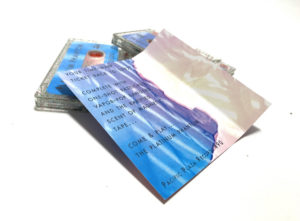
I liked the next track, “Outrun.” However, this may be only because I am on a chiptune kick as of late. Just over two minutes of classic arcade-sounding goodness, and though it feels out of place on the album, as a stand-alone track, it is a catchy piece and is an example of repetitiveness done the right way. It conveys a clear feeling of “retro-ness” and has the clearest intentions of all the songs on the album. It isn’t complex, but in this instance and with what the song is trying to make you feel, it doesn’t need to be.
Sampling a scene from the 1997 box-office bomb B.A.P.S is “Pimpsqueak.” Following the sample is a short tune in the classic vaporwave style, with a slightly tropical feel, before “Main Drag (Feat. Donor Lens)” takes us back to the throbbing beat of a dance club. It is slightly minimalistic in its sound, but I feel like it does what it sets out to do. A track that sounds like it is meant to be played as a generic dance tune in an action movie, with the main character moving his way through a club, on his way to confront the drug lord that distributes his product in the basement of the place. The song is meant to inform you that, yes, this is indeed a place where young people go to boogie and do drugs, but that is it. It is one of those rare dance tracks that is not actually meant to be played too loud. A bit repetitive yes, but I dare you to find a dance track that is not.
The longest track on the album is the finale, “Deep Blue/Orange Julius.” It begins with a 1:40 piano piece before suddenly transitioning into a slowed-down version of Amy Grant’s pop hit, “Good for Me.” A great choice for a sample, however, there are some issues. It appears to only be minimally edited, save for being slowed down. I also fail to see the significance of pairing it up with the initial piano solo. I feel like the artist was trying to get across a message to me that I simply did not understand, and I really tried. I thought perhaps there was some significance in the name, with the piano being Deep Blue and the Amy Grant part being Orange Julius, but a google search revealed no correlation. And finally, though it is a small issue, “Good for Me” was released in 1992. Just sayin’
Looking at the info on the Bandcamp page for this album reveals that there are a wide and impressive variety of samples used in the making of this album, but for such variety, it seems that there is very minimal usage of them in meaningful ways. So much so that I was fooled into thinking that a track that used multiple samples, had only one source. The love is just spread too thin. The talent is there (Shields’ previous albums attest to that) and you can tell it’s there, just not the sound. If I had to sum up the album with a single phrase, it would be: missed opportunity. There are plenty of instances where the album hints at something great, but then switches to something… not as great. The jumping around of tones and styles is jarring and the theme of 1997 just does not excuse this. Platinum Phantom feels like three completely different incomplete albums rolled up into one, only sort of complete album.
Darien Shields
Get The Album!
Score: 2/5

